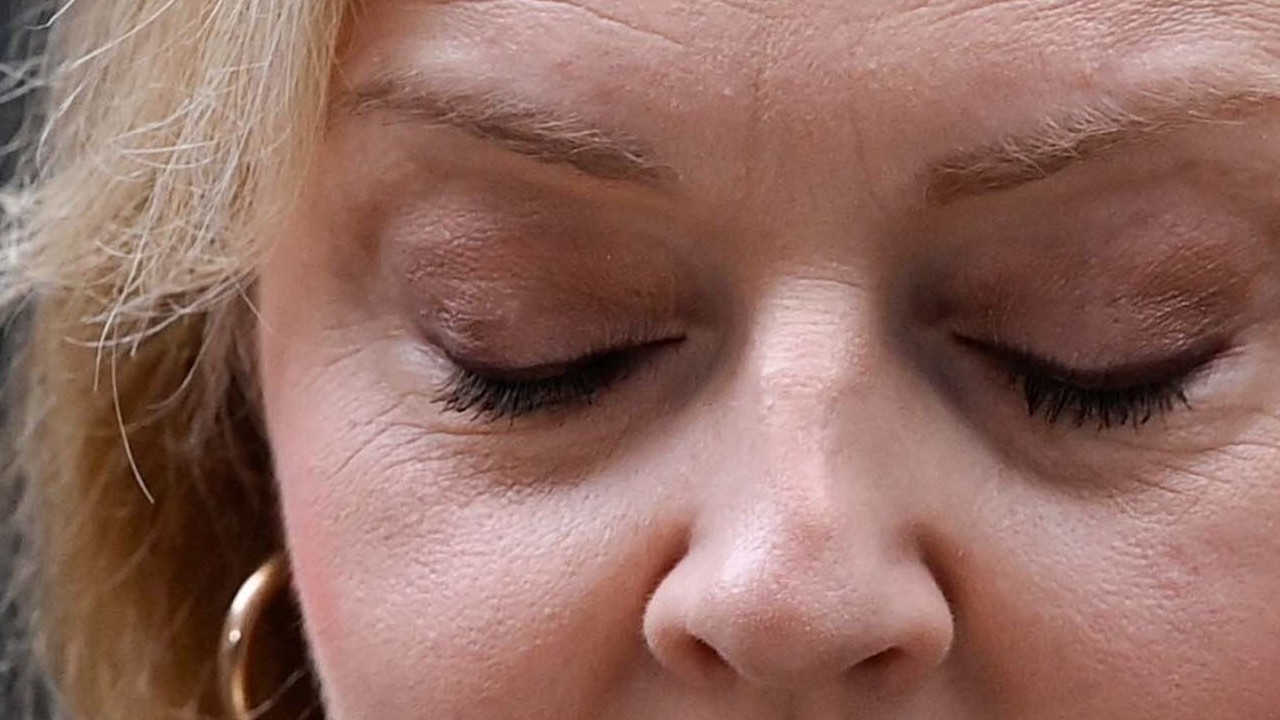
Liz Truss forced out as Britain’s prime minister after just 6 weeks
- Conservative leader is the shortest serving prime minister in modern British history as her party turns against her after missteps that unnerved financial markets
- Her replacement is not yet decided; her competitor for PM, Rishi Sunak, is one possibility and recently deposed Boris Johnson is expected to stand again
Truss’ fate was sealed following the sacking of several ministers in recent days, a chaotic night in parliament on Wednesday and more than a dozen Tory MPs calling for new leadership the next morning.
The uncertainty sent the British pound to its lowest level against the dollar in 50 years in late September and has pushed mortgage rates and bond yields sharply higher.
Despite rolling back much of her tax-cutting plans this week, she further lost confidence of Conservative MPs in recent days following the sacking of Chancellor of the Exchequer Kwasi Kwarteng and the Home Secretary Suella Braverman – two of the most senior roles in government.
Braverman questioned the “direction of this government” in a blistering resignation letter on Wednesday.
On Wednesday, an embarrassing night in the House of Commons saw Tory MPs allegedly manhandling their colleagues during a vote and further amplified the apparent disarray in her government.
“I recognise though given the situation, I cannot deliver the mandate on which I was elected by the Conservative Party,” Truss said in a brief statement outside Downing Street on Thursday.
Truss’ humiliation a lesson for all leaders
“I, therefore, have spoken to His Majesty the King to notify him that I am resigning as leader of the Conservative Party.”
She is the shortest serving prime minister in modern British history. George Canning served 119 days in office before dying from an illness.
Her resignation came a day after she said she was a “fighter not a quitter”, amid jeers from her own party members during prime minister’s questions in the House of Commons.

Truss said she would continue to serve as prime minister while an accelerated leadership contest for her replacement plays out over the next week.
Her successor will become Britain’s fifth prime minister in six years, but will face the challenge of uniting several warring factions in the Conservative Party ahead of the next scheduled general election in January 2025.
The opposition Labour Party, led by Kier Starmer, has been calling for a much sooner general election after taking a 36-point lead over the Tories in a new poll this week.
Sunak, the former chancellor, is one of several candidates who could emerge in the latest leadership contest. Other potential candidates include Braverman, Defence Secretary Ben Wallace and Penny Mordaunt, the former international trade minister and leader of the House of Commons.
Jeremy Hunt, who was brought in as chancellor on October 14 to help stabilise markets, said he would not stand as a leadership candidate after two unsuccessful bids for the top job. Hunt has since rolled back much of Truss’s tax plan.
Johnson was reportedly expected to stand for the Conservative Party leadership, as some MPs called for his return as prime minister.
“He’s taking soundings but is said to believe it is a matter of national interest,” Times Political Editor Steven Swinford said on Twitter.
Graham Brady, the chair of the 1922 Committee, which will oversee the contest, said he hoped to have a leadership result by October 28.
For Truss, her resignation represents a historic downfall for a prime minister and a humiliating personal setback in a whiplash-inducing period in British politics that will see three different prime ministers in Downing Street since July.
Truss had been seen as a survivor, serving in the governments of three prime ministers in the past decade. She has served in roles ranging from education secretary to justice secretary in the governments of Johnson, Theresa May and David Cameron.
As a leadership candidate, Truss vowed to shrink the size of Britain’s government, lower taxes and redefine the country’s relationship with the likes of the European Union (EU) and China. She was widely considered one of the most hawkish members of Johnson’s cabinet on China.
However, she was unable to set the tone early in her premiership.
Sunak vs Truss: is race a factor in the UK leadership race?
Queen Elizabeth, Britain’s longest-serving monarch, died at the age of 96 two days after Truss became prime minister and the memorials around the queen’s death delayed any official government actions for nearly two weeks.
The agenda was then dominated with how to address a cost-of-living crisis spurred by massive rise in energy prices and high inflation.
Inflation topped 10.1 per cent in September, according to the latest government figures this week. One in seven Britons also were skipping meals or going without food because of rising prices, according to polling by the Trades Union Congress.

A mini-budget announced on September 23 to address the crisis also included tens of billions of pounds in tax cuts, many of which helped the wealthiest in Britain.
Truss insisted it was part of her plans to spur growth, but financial markets reacted negatively over concerns for how it would be paid for.
The Bank of England also was forced to intervene and buy billions of pounds in government bonds as the market chaos threatened the nation’s pension industry.
The pound gained against the US dollar on Thursday following Truss’s resignation. The pound rose 0.5 per cent to US$1.13 in early afternoon trading in London.
Truss, the former foreign secretary, also had pledged to be tough on authoritarian regimes, particularly Russia following its invasion of Ukraine this year.
Russia’s foreign ministry said on Thursday that Truss would be remembered for her “catastrophic illiteracy” and called her a disgrace as a prime minister, according to Reuters.


